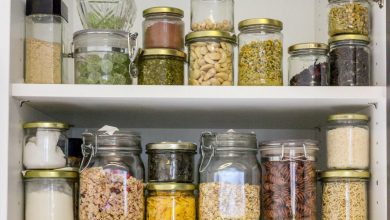
Social supports can lower your stress, make you healthier, and ease your burdens
Needing a specialized diet can be isolating or even alienating in social circles. Whether you have celiac, non-celiac gluten sensitivity, or have a partner, child, or another important figure in your life with one of these disorders, having a supportive community will be key.
In being diagnosed with medical issues related to gluten, it’s possible to feel entirely alone. In the United States, studies indicate that somewhere between 0.6-1.2% of the population have celiac disease—roughly 1 in 140 people—and around 6% have non-celiac gluten sensitivity. Essentially, an individual can be the only person in their entire social and family circles to be diagnosed with a gluten-related disorder.
The Importance of Support & Community
A multitude of studies has demonstrated the importance of support, particularly in the instance of long-term illness. Illnesses don’t come much more long-term than something that will change your diet and indeed your whole lifestyle permanently. Needing to go gluten-free will put stress on your mind, your body, and your wallet. One of the best ways to off-set this? Finding appropriate support.
Remember that quality is more important than quantity when it comes to receiving support. Finding a few people who support you well will better off-set the (potentially) chronic stress of living with a long-term illness, which isn’t to say that more support is bad—just that good support is more important than a lot of bad support.
Good support will encourage you, actively help you with your struggles, and generally be willing to listen. These social support networks can also help you stick to your gluten-free diet and find positive ways to deal with difficulties. Studies show that increased social and emotional support is so important it can be an indicator for life expectancy; those who receive more support tend to live longer!
Gluten-Free Specific Support
At this point, you may look at your typical social/emotional support network and feel like it’s adequate to help you with your gluten-free needs. That’s wonderful! However, consider the benefits of finding support that not only cares about you but can go the extra step of understanding your experience because they experience it themselves.
The biggest hurdle for someone with a celiac or gluten-sensitivity diagnosis is figuring out how to eat a gluten-free diet safely. Talking to your doctor and dietician is a wonderful (and important) starting point, but there are likely still a lot of questions. What are some quick meals? What restaurants do well meeting gluten-free requirements? Which brand of gluten-free crackers tastes the most like what I like?
A gluten-free support network is likely to have people with a wide variety of both experience and taste. Someone will have exactly the recipe you need or know where to look. This kind of resource is invaluable, particularly if you’re new to eating gluten-free.
Access to the internet also means access to an entire world of research. Some of that research is good, some of it is terrible. Some are old and out of date, some are so new it hasn’t been validated through multiple studies yet. Needing to eat gluten-free may make you inclined to want to believe any miracle cure or, conversely, doom-and-gloom statement you come across. Or you might feel completely overwhelmed and not care to dig into the research yourself.
A gluten-free support network can help here. If you aren’t the type to do research, someone there will be and can help you stay abreast of key developments. Do like research but aren’t sure about a source. You can share it with your support network and receive valuable feedback, opinions, and insights to understand better the illness you’re experiencing.
As the old saying goes, laughter is the best medicine. Finding ways to see the humor in an otherwise stressful situation can help with coping. Others experiencing the same issues you are will more likely have a similar taste in humor when it comes to your disorder.
Someone who doesn’t need to eat gluten-free may be too uncertain about sharing celiac or gluten sensitivity-related humor with you, or what they do share may be off the mark. While the attempt is well-meant, those best equipped to help you find ways to laugh are those who are walking in your shoes.
Where Do I Find Support?
Fortunately, there are myriad ways to find and experience support for gluten-free living, whether you prefer online, in person or social media-based support. While not an exhaustive list, here are some great places to get started:
If you prefer online interaction and support, r/GlutenFree is a Reddit subgroup that’s a great place to start. Members here share their stories, recipes, and experiences with eating gluten-free. Other subreddits exist specifically for gluten-free humor, recipes, and other topics of interest.
The National Celiac Association has local chapters of support groups. It boasts local partners (smaller groups with dynamic support) and resource people (individuals who assist in connecting you to resources and advocacy). Meetings are currently held virtually, but typical face-to-face meetings will resume once it’s safe to do so. If you prefer to speak to people, this is a great place to start.
Raising Our Celiac Kids, or R.O.C.K. is an offshoot of the National Celiac Association dedicated to helping parents and caregivers of children or teens who need to eat gluten-free diets. While celiac is in the name, they do not exclude those with gluten-sensitivity and provide a range of resources from caregiver training to educational materials to support groups and meet-ups. Like it’s good for adults to understand support, kids can benefit from knowing there are other children like them.
Aside from being a great resource in itself, Beyond Celiac has a list of resources and potential support groups to browse if nothing here quite fits the bill.
And if you’re the social media sort, try searching #glutenfreeblogger on Instagram to find loads of people sharing gluten-free life hacks and experiences on the daily.
Put In The Time, Find Your Support
It’s almost impossible to overstate the value of finding a social and emotional support network to help you on your gluten-free journey. Like many other things involved in switching to a gluten-free diet, it will take time and effort to find the right fit. The payoff, though, is years of reduced stress, easier meal planning, and having friends who can say they understand.
Sources:
https://www.ncbi.nlm.nih.gov/pmc/articles/PMC6182669/
https://journals.lww.com/ajg/Abstract/2012/10000/The_Prevalence_of_Celiac_Disease_in_the_United.17.aspx
https://jessicasglutenfreekitchen.com/2020/08/17/21-gluten-free-life-hacks/
https://www.ncbi.nlm.nih.gov/pmc/articles/PMC2729718/
https://www.ncbi.nlm.nih.gov/pmc/articles/PMC2921311/
https://www.reddit.com/r/glutenfree/
https://nationalceliac.org/celiac-disease-support-groups/
https://www.raisingourceliackids.org/
https://www.beyondceliac.org/celiac-disease/additional-information/support-groups/













